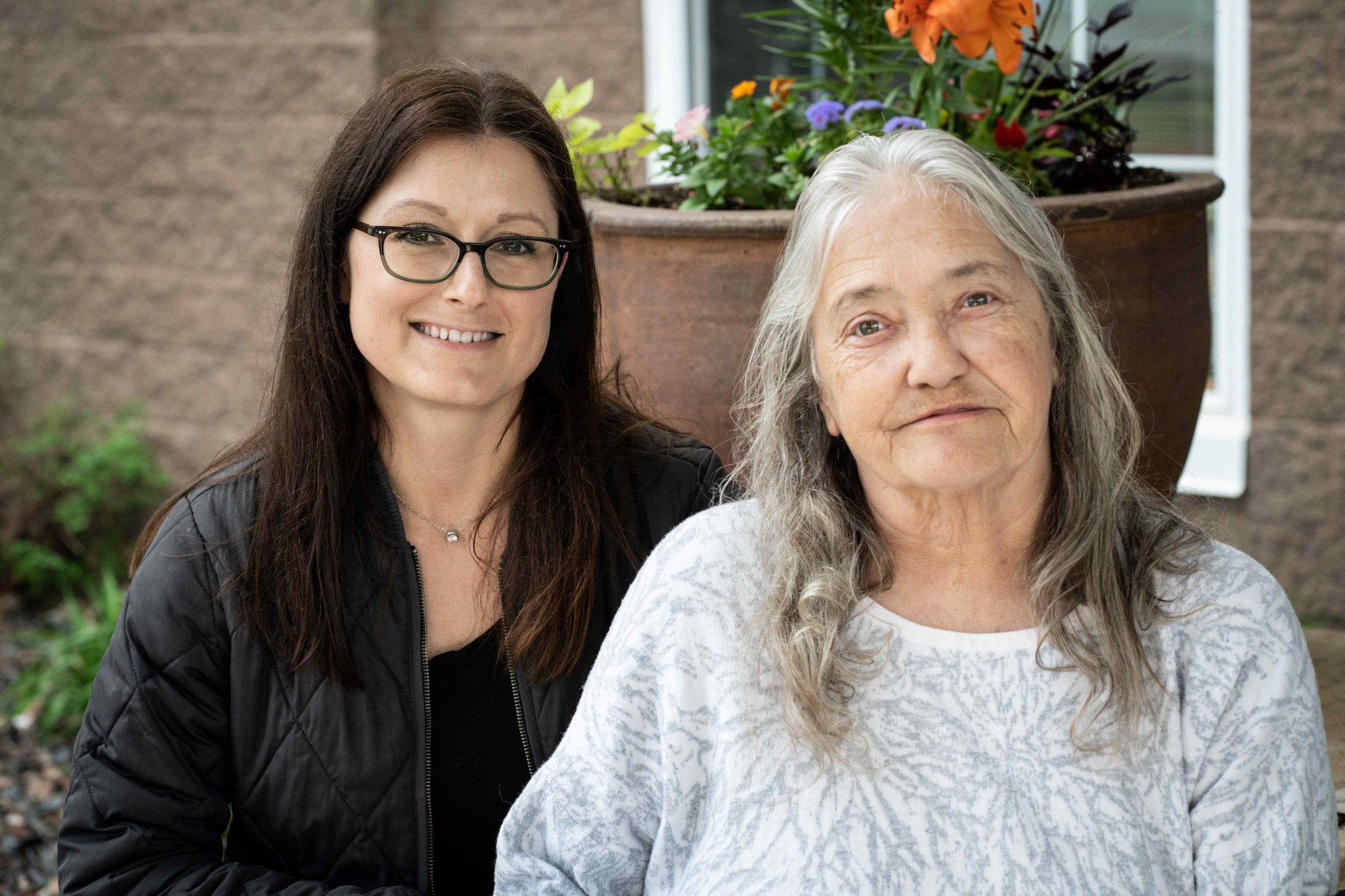Carol’s Story: Elder Homelessness
A life changing phone call
Carol describes herself as “one tough cookie.”
Having grown up in an abusive home and later navigating her own journey to sobriety as a young adult, Carol learned that she could rely on herself to figure things out. But in January 2020, Carol received a life-changing phone call—her son, Erik, was in the hospital after experiencing a massive left-brain stroke. At only 49 years old, Erik had been busy working as a professional photographer in St. Paul when this tragic event derailed his life. The stroke left Erik with severe mobility issues and unable to speak.
Experiencing emergency shelter as an older adult
At the time, Carol was living in Wisconsin, far away from the hospital where Erik was receiving care. She was heartbroken to hear that Erik was likely going to need to stay in a nursing home while he recovered. “I knew I had to get back home to Minnesota to be with him,” Carol remembers.
Doing whatever she could to be closer to her son, Carol decided to stay temporarily at an emergency shelter in New Richmond, Wisconsin, about forty miles east of the Twin Cities. For months, Carol spent hours driving back and forth to manage the aftermath of Erik’s hospitalization. She moved belongings out of his apartment, made sure his beloved cat was cared for, and coordinated with Erik’s doctors as he recovered from heart surgery—yet another consequence of his stroke.
Carol eventually moved to a Minneapolis shelter location, but finding an affordable apartment in the Twin Cities remained out of reach. She desperately wanted to get Erik out of the nursing home, but at that point, the pandemic was running rampant. “I couldn’t even go and see him.” Carol remembers. “I was tearing my hair out.” Just when Carol was gathering the resources she needed to be able to move Erik, she contracted COVID-19.
Light at the end of the tunnel
Carol was required to stay in a COVID isolation room with others who were very sick. She describes this time as, “insane and scary. You’re so displaced and you just lose touch. There was no place to go for peace and quiet — to get away from everybody else’s problems so you could focus on your own.”
While Carol recovered from COVID, she was connected to Catholic Charities’ Homeless Elders program, which provides intensive case management and advocacy on behalf of vulnerable older adults. It was then that Carol met Case Manager Melea Blanchard. “If it were not for her, I don’t think I would’ve made it,” says Carol. “After I met Melea, I could see a little light at the end of the tunnel. It was like somebody actually cared.”
“After I met Melea, I could see a little light at the end of the tunnel,” says Carol. “It was like somebody actually cared.”
Homeless elders program helps Carol start fresh
Melea worked to find housing for Carol that could also accommodate Erik. The two of them now live together in an apartment in St. Paul. “Since I have been out of the shelter, and Erik could come home, I think he has improved significantly,” Carol shares.
With stable housing, Carol has been able to manage her own health and secure resources for Erik as he works through speech and physical therapy. They still face challenges, but with a place to call their own—Carol says, “We are doing the best we can with what we’ve got.”
Carol lent her lived expertise at the Minnesota Capitol this year, testifying in support of Catholic Charities’ Homeless Elders program. “I’m an activist at heart”, Carol says, “seniors are not disposable. We are not stupid. We deserve dignity and respect.” With Carol’s help, legislation was passed that will make a difference for other older adults facing homelessness or in need of other support in our community!

